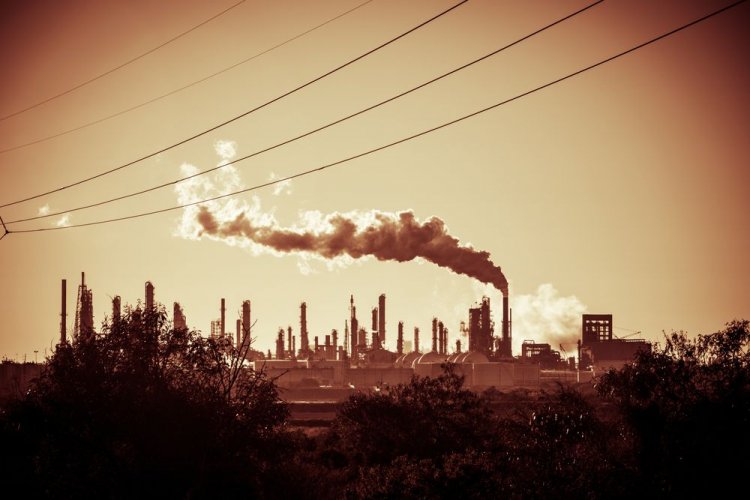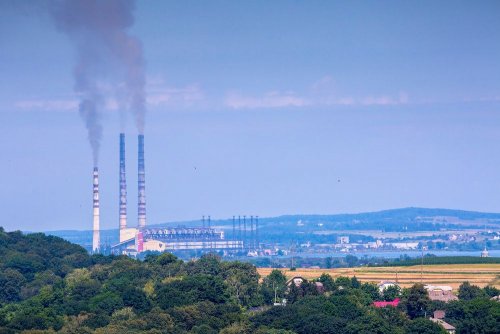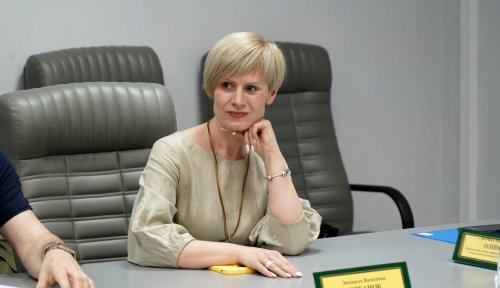EcoPolitic analyzed the main provisions of the draft law No. 11355 "On Integrated Prevention and Control of Industrial Pollution," adopted by the Verkhovna Rada in the first reading.
You can get acquainted with the full version of the document in the bill card on the parliament's website.
Three major innovations of the industrial pollution bill:
- Combining nature protection permits into one — integrated.
- Introduction of NDTM (best available technologies and management methods).
- Creating a register of enterprises that must receive an integrated permit.
The purpose of the draft law is the establishment of legal and organizational principles for the prevention, reduction and control of industrial pollution to ensure environmental protection and constitutional rights to an environment safe for life and health by implementing an integrated environmental permit, determining the types of activities that require obtaining such a permit, requirements for mandatory application of the best available technologies and methods of management, emission monitoring and control of compliance with the conditions of the integrated environmental permit.
"As part of the implementation of the provisions of Directive 2010/75/EC, it is mandatory for business entities to use the best available technologies and management methods and achieve the maximum permissible levels of pollution established in accordance with them. In Ukraine, there are no developed legal acts establishing a list of the best available technologies and management methods to regulate certain types of activities, and the maximum permissible concentrations and maximum permissible discharges of polluting substances do not correspond to the values of Directive 2010/75/EC," the explanatory note states.
Currently, the system of permits in the field of environmental protection is based on a component approach to regulating the impact on the natural environment, which does not allow to take into account the cumulative impact of the economic entity on the natural environment, partially ignoring issues related to soil protection and groundwater pollution, efficient consumption of energy and raw materials, decommissioning conditions and restoration of the territory of the industrial site to a safe ecological state. That is why there was a need to introduce an integrated environmental permit.
The draft Law defines:
- basic requirements for an integrated environmental permit;
- a list of activities that require its receipt;
- the procedure for issuing an integrated environmental permit;
- grounds for refusal of extradition;
- grounds and procedure for cancellation;
- the grounds and procedure for making changes to the integrated environmental permit;
- requirements for the register of integrated environmental permits;
- features of emissions monitoring and control of business entities that have received an integrated environmental permit.
The draft Law provides that the projected number of economic entities to which this norm will apply is about 3,500.
The main provisions of the draft law also include the following:
- the validity period of the integrated environmental permit is unlimited;
- a fee of 30 subsistence minimums for able-bodied persons is charged for issuing an integrated environmental permit (making changes to it);
- an integrated environmental permit or a decision to refuse its issuance is issued within 30 working days from the date of completion of consideration of the application for obtaining an integrated environmental permit (amendment to it) and the documents attached to it by the competent authorities;
- the permitting authority determines the maximum permissible emissions under which, under normal operating conditions of the installation, emissions will not exceed the standards of maximum permissible emissions determined in the conclusions of the best available technologies and management methods;
- in the conditions of the integrated environmental permit, the requirements for the installation and operation of automated equipment for monitoring emissions are determined in the order and in the cases provided for by the conclusions of the best available technologies and management methods and environmental regulations;
- provided for the creation of the Unified State Register of Integrated Environmental Permits, access to which is provided through the Register's user account, mailing list and the Register's web portal;
- financing of measures to implement the best available technologies and management methods by plant operators is carried out by economic entities at the expense of their own funds, state aid, international technical assistance and other sources not prohibited by law;
- operators of installations that are put into operation for the first time within 12 months from the date of entry into force of this Law, submit an application for obtaining an integrated environmental permit no later than three months from the date of entry into force of this Law;
- the conclusions of the best available technologies and management methods provided for in Article 311 of the Law of Ukraine "On Environmental Protection" are applied no earlier than 4 years after the termination or cancellation of martial law;
- operators of facilities intending to decommission the facility after this Law enters into force shall attach to the application for obtaining an integrated environmental permit a statement of obligations regarding the decommissioning of the facility, indicating the justification and grounds for determining the final period of operation of the facility, which cannot exceed 10 years from the date of entry into force of this Law.
Meanwhile, representatives of the business community have criticized this draft law. They noted that it is unrealistic to change the sphere of industrial pollution management only by adopting a framework law without a specific definition of the mechanisms for its implementation and sources of funding for eco-modernization measures. Entrepreneurs also emphasized that it is impossible to force business to invest in something – the state must create conditions that will promote investment. They recommended following the European path in the implementation of NDTM, when in the EU, systematic support with investments and technologies for 30 years ensured the partial implementation of the best available technologies.
Yes, experts from the Association of Environmental Professionals (PAEW) turned to to the deputies of the Verkhovna Rada and pointed to the norms that create high risks of the impossibility of enterprises fulfilling the relevant requirements of the draft law in practice.
Members of the National Association of the Extractive Industry of Ukraine asked people's elected officials to make changes to the draft law "On integrated prevention and control of industrial pollution" No. 11355 and take into account three critical remarks of the industry and the current economic situation in the country.
EcoPolitic also analyzed the draft law discovered it has flaws that can lead to the closure of some enterprises and the collapse of the permit system.
Earlier, EcoPolitic wrote, that June 20 The Verkhovna Rada of Ukraine passed based on the draft Law "On Integrated Prevention and Control of Industrial Pollution" No. 11355. It turned out to be practically identical to the European integration draft law No. 6004-d "On ensuring the constitutional rights of citizens to an environment safe for life and health", for the adoption of which the people's elected representatives lacked only one (!) vote on June 19.





